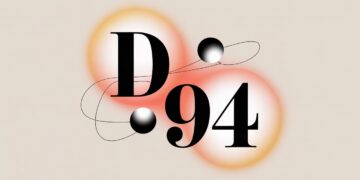When you study modern language at university level, you will find yourself into new learning experience and will be able to learn new grammatical philosophies as well as history of the modern language. You will have a grip on research and writing skills as well as an increased level of vocabulary. All of this will help you to write a well-researched modern languages dissertation in the final semester.
However, not all students have good experience when they study modern languages as a specialisation subject. They may face difficulties in research and presenting the data and findings in a reliable way. Therefore, this article brings some top tips that can help you to gather the data and then present in the form that can impress the supervisor. However, before proceeding to the main topic, we will understand what “Modern Languages” is.
Tamsin Mosse from Complete University Guide explain modern languages in her article “Study Modern Languages, why & how to Study”, published on 06 October 2023, as:
“Modern Languages studies two or more languages and their histories, societies, politics and cultures. You will develop your speaking, reading, listening and writing skills and may even have the chance to learn something new, like Arabic or Mandarin, at the beginner level”.
Modern languages dissertation writing is a daunting task for most students. However, the number of enrollments for this degree is decreasing because of subject complexity. The University of Aberdeen updates about “The Future of Modern Languages at the University of Aberdeen”, published on 30 November 2023. According to this report:
“The current state of the Modern Languages provision at the university is unsustainable due to consistent low student enrollment figures. Particularly low recruitment to undergraduate Modern Languages programmes at Aberdeen in September 2023: 27 Full Time Equivalent (FTE) students, falling from 46 FTE in 2022 and 62 FTE in 2021”.
The percentage of student admissions to modern language programs is decreasing for many reasons, but tough subject matter is a prime reason. Modern languages often require intensive grammatical understanding, linguistic nuances, and cultural immersion, making them appear challenging to prospective students.
Multilingual Career Paths of Modern Languages
Modern languages provide a wide range of career opportunities. Students with modern language and culture pursue diverse career paths, entering fields such as non-governmental agencies, data management analysis, diplomacy, multinational corporations, arts organisations, public service, teaching, interpreting, translation and editing.
Students are attracted towards this field multiplex nature and challenging criteria make this subject difficult to study. Its final year research project is one of the toughest tasks in the whole educational career. But you can compose an impressive dissertation if you represent its data and effectively emphasise its findings. If you find it difficult to attempt, you can seek modern languages dissertation writing services from professional dissertation writers. You can also try the following tips for presenting data and findings in a dissertation for modern languages students.
10 Secrets to Mastering Modern Languages Dissertation
Presenting data and findings effectively are crucial in dissertation. Crafting a compelling modern languages dissertation around linguistic research demands clarity and precision. In this context, 10 indispensable tips emerge to guide scholars through the intricate process of showcasing their discoveries, ensuring that their academic endeavors resonate with clarity and impact.
1. Clarity is Key:
Ensure your data and findings are presented with utmost clarity. Use concise and simple language, avoiding unnecessary jargon. Clearly articulate all the essential points in a systematic and logical manner to enhance radar comprehension.
2. Visual Representation:
Incorporate visually appealing graphs, charts, and tables to convey complex data. Visual representations offer a quick and accessible way for readers to grasp information, making your dissertations more engaging. International Journal of Management and Applied Research
Give a detailed guide, “ Effective Use of Visual Representation in Research and Teaching within Higher Education”, published in 2020. They state that:
“Creating suitable visual materials helps the author structure and make sense of their own thinking. The process helps “embed representations, using graphical and textual semiotic conventions of their creator’s understanding of a given issue.”
3. Contextualise Findings:
Provide a contextual framework for your data. Help readers understand the significance of your findings by connecting them to relevant theories, literature, or real-world scenarios within the field of modern languages. You can represent existing literature review that comes from secondary sources of information.
4. Structure Your Findings
Structure your data thematically on your modern languages dissertation topics to highlight key trends and essential points. Organising findings into themes enhances the narrative flow and aids in synthesising information for the reader. To structure findings, you need to pass through the following steps:
- Revisit your problem statement
- Compose an introductory overview
- Look over measures and data shape
- Represent inferential statistical data
- Demonstrate your descriptive statistics
By following these steps, you can logically chalk out findings that will be easy to read for your reader.
5. Utilisе Modern Technology
You can utilise various modern tools and techniques in research methods and for data visualisation like interactive graphs, charts, and multimedia presentations to convey complex linguistic findings effectively. Integrating technology elevates the quality of data representation, facilitating a more compelling and accessible narrative for your readers.
6. Accurate References & Citation:
It is also important to incorporate references and citations into your modern languages dissertation to show the validity and authenticity of your work. Ensure proper citation of sources when presenting data. Clearly attribute data points to their respective origins, maintaining academic integrity and providing transparent proof of your extensive research.
7. Interpretation and Analysis
When you prepare your rough data to apply the study design that you have demonstrated in your research methodology chapter, you need to analyse data critically. Accompany your data with thoughtful interpretation and analysis. Explain the implications of your findings, addressing the “so what” question to demonstrate a deep understanding of the significance of your research.
8. Engage with Multilingualism
If your modern languages dissertation involves multilingual aspects, consider presenting data in various languages relevant to your study. This reflects linguistic diversity provides a positive impact on your whole school’s design.
9. Balance Quantitative and Qualitative Research
Articulating a dissertation requires both quantitative and qualitative data representation. You need to consider both data types while researching your subject matter to get more modern languages dissertation ideas. Both these types of data are necessary to address your research query from every aspect. This ensures a comprehensive presentation of your whole study design.
10. Ask for Feedback
This is the best trick to evaluate the impact of your data and findings. Seek feedback on your data presentation from peers or colleagues proficient in modern languages. You can also show it to your supervisor and ask for honest feedback. In this way, you can evaluate your work and make it a more refined and well-organised piece of paper.
Conclusion
Writing a dissertation on modern languages is often challenging due to several factors. First, mastering grammar rules, vocabulary, and pronunciation can be intricate and demands time and effort. Second, achieving proficiency requires consistent practice and exposure to a variety of languages.
Furthermore, while writing final-year projects, students should be equipped with good research, writing and language skills to represent their data and findings in modern languages dissertations. Above, we mention some proven strategies to help you to get rid of all the data representing hurdles while articulating a dissertation.
However, if you still find difficulties in composing your “Result” chapter or in writing the whole dissertation, you can get dissertation writing help from expert writers to ensure you pass grades with distinction.
Also, Read Maximizing Style and Functionality: An In-Depth Look at IKEA’s Dresser Collections.


















